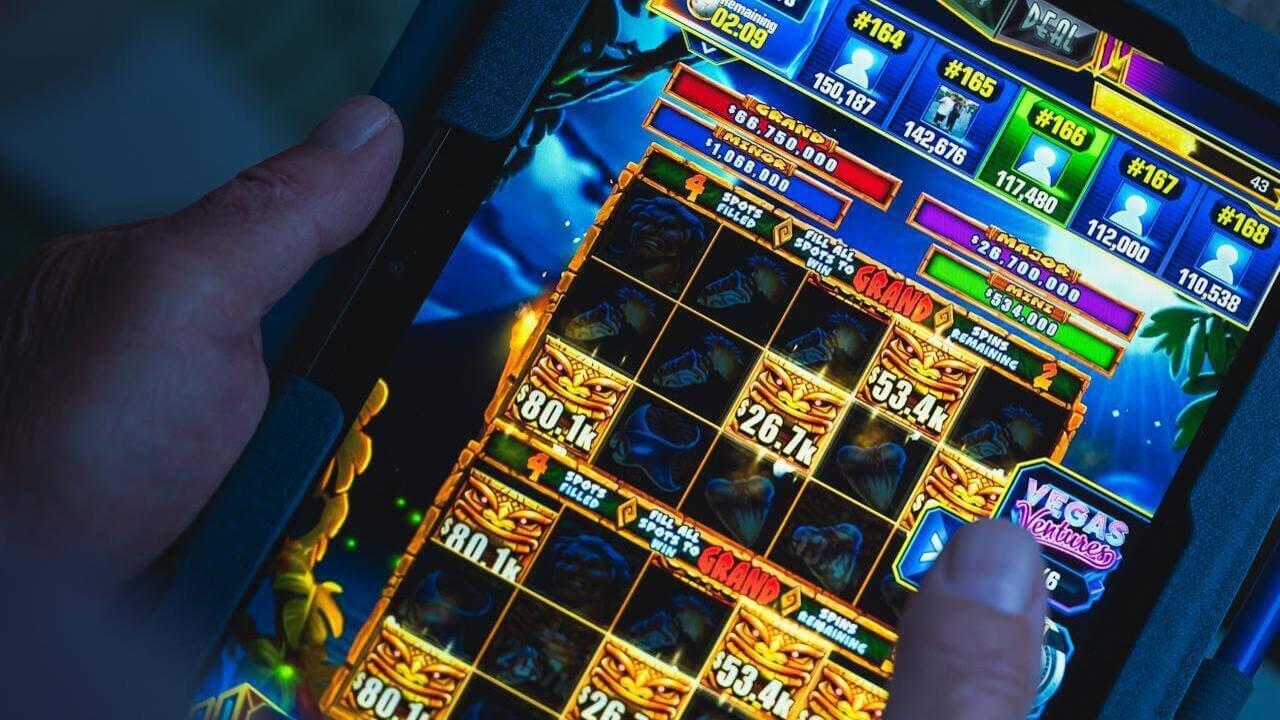The Psychology of Gambling: Do Bitcoin Casinos Influence Player Behavior Differently?

Gambling psychology is a well-researched and documented topic — at least for traditional casino settings involving state-backed money. While the role of fiat currencies in a gambler’s cognitive bias is well-known, cryptocurrencies add a unique set of psychological factors that affect a gambler’s gameplay.
Since a new Bitcoin casino operates outside traditional banking systems, its impact on players is quite different. Several factors, including anonymity, fast transaction speed, value volatility, decentralized functioning, and fewer restrictions impact players’ actions at every level.
In this article, AnyCoin experts will explore this crypto-influenced psychology of Bitcoin-powered casino play and discuss how it differs from casinos that only support traditional currency.
Fiat Currencies and Traditional Casino Psychology
In fiat-based casinos (brick-and-mortar and online), players’ psychology is influenced by factors like the dynamics of taking risks and winning rewards, sometimes contributing to impulsive behavior and poor decision-making.
Risks vs. Rewards Dynamics
For gamblers, the joy of winning follows the excitement of taking risks. This enhances both the adrenaline and dopamine boost that players get. On the other hand, losses can evoke disappointment and frustration.
Regardless, players frequently base their decisions on potential rewards rather than real probabilities and risks, often overestimating their chances of winning. This is the basis of gambling addiction, characterized by poor decision-making, especially as the stakes rise.
Trust and Reputation
The existence of licenses and regular third-party audits influence the online casino’s reputation and, consequently, players’ behavior. Licenses, KYC (know your customer) processes, and perceived security measures make players feel safe in their transactions and bets. All this encourages gamblers to play more frequently and place larger wagers despite the inherent risks of gambling.
Cognitive Gambling Biases in Fiat Casinos
The following psychological factors are very frequent among fiat casino players:
-
Aversion to losses is an amplified worry that leads players to chase losses rather than pursue gains.
-
Gambler’s fallacy is the belief that past outcomes influence future results in games of chance. Thinking that a win is due after a series of losses is a typical example of a gambler’s fallacy.
-
The sunk cost effect drives players to continue gambling because they have already lost much and want to gain some back — even if the chances of winning are low.
-
The house money illusion is a cognitive bias in gambling psychology where players treat casino winning as less valuable funds than their original money. Essentially, in the house money illusion, gamblers perceive casino gains as free or disposable, making them more likely to take risks compared to betting with their own hard-earned money.
Psychological Factors Shaping Bitcoin Casino Action
Online Bitcoin casinos introduce several unique gambling elements that significantly affect players’ behavior. In this section, we’ll break these elements down and explain their effect on casino users’ actions.
Perceived Anonymity and Privacy
While traditional casinos rely on “know your customer” procedures, bitcoin casinos often don’t require such verifications. KYC typically discourages risky behavior by keeping players’ identities visible, thus making them more accountable.
Bitcoin casinos tend to allow users to gamble completely anonymously, thus leading to more impulsive behavior. The lack of identity checks encourages players to feel freer in making larger and riskier bets, as they don’t face the same personal exposure as with traditional KYC casinos.
Fast Transaction vs. Bitcoin Bet Size
Fast transactional speeds in Bitcoin casinos also influence players’ behavior. Unlike the lengthy traditional banking methods, instant transactions with no banking restrictions foster a sense of urgency and excitement in players. This encourages players to spend more, while the immediate nature of deposits lowers the psychological barrier to making quick decisions.
The Blockchain Trust Effect
Speedy transactions are not the only advantage of using the blockchain technology in casinos. Some Bitcoin casinos are blockchain-based, thus offering provably fair games. This possibility of players verifying the fairness of each bet and their transparency builds trust and confidence in the casino provider.
The decentralized nature of blockchain reduces skepticism associated with traditional casinos, giving players a sense of ownership over their funds. These factors encourage more intense and longer gambling sessions.
Bitcoin Trading Factor: A Thrill Within the Thrill
The volatility of Bitcoin value adds another layer of uncertainty for players, potentially leading to bigger risk-taking when the market is in this cryptocurrency’s favor. Heavier spending is also observed when players anticipate Bitcoin’s price to surge.

Bitcoin Casinos and Risky Gambling
Bitcoin casinos can — though not necessarily — amplify risk-taking behavior. It all depends on the potentially higher appetite for risk already present in cryptocurrency gamblers.
Bull Runs and Casino Play Engagement
The changing value of Bitcoin often leads to players feeling emboldened by the surges in the price. During the so-called “bull runs,” when the price of Bitcoin constantly increases, crypto players feel more financially safe, thus placing larger bets online. This added excitement of price fluctuations can increase a cycle of high-stakes behavior, as players try to capitalize on the perceived potential big rewards.
Easy Access and Limitless Gambling
The decentralized nature of Bitcoin and other cryptocurrencies means players often gamble without any limits in terms of transactional times, transfer amounts, or fees. Traditional fiat casinos typically impose banking and deposit restrictions, which can help control spending and reduce impulse gambling.
However, the lack of third-party oversight (like banks or other financial institutions) in Bitcoin casinos allows players to deposit wages freely, without any imposed financial boundaries. This can increase the likelihood of players gambling beyond their means, especially when they are fueled by the perceived ease of accessing funds quickly.
Holding vs. Spending Habits
Many crypto users prefer to hold their assets out for long-term value appreciation, which can make them more cautious gamblers. These Bitcoin owners prefer betting strategically rather than impulsively. However, when Bitcoin value rises, some holders become more willing to spend their crypto, which induces higher betting activity. Bitcoin value’s ups and downs influence players’ engagement with casinos and the overall casino retention strategies.
Bitcoin Halving and Gambling
Bitcoin halving, which occurs every four years, reduces the block reward for miners by 50% and decreases the rate at which new Bitcoin enters circulation. This leads to the so-called sparsity of Bitcoin, resulting in price surges, rapid market volatility, and shifts in the spending behavior of Bitcoin holders.
Halving impacts casino play in several ways, including the following:
-
Increased betting. Bitcoin’s price typically increases after Bitcoin halving, so holders are more likely to play in casinos when this occurs. This scenario plays out because Bitcoin owners feel wealthier and more willing to gamble at these times, which leads to not only lengthier engagement with casino play but also higher betting volumes.
-
The house money effect. The fluctuating value of Bitcoin could distort players’ perceptions, making them believe they are playing with someone else’s money rather than their own. So, players may treat their Bitcoin gains as found money, encouraging them to wager larger amounts without the same emotional attachment that they would apply to fiat currency.
-
Boosted deposit matches or tournaments with Bitcoin prizes. Bitcoin casino operators are aware of the fluctuation in Bitcoin gambling, so they are timing their retention strategies accordingly.
-
Introducing limited-time HODL or Bet features. This dual-play feature allows users to either bet or stake Bitcoins within the casino.
-
Simplifying onboarding. Casinos tend to go out of their way to help new crypto gamblers who are entering the space because of the halving hype. This includes guides on Bitcoin gambling that ensure smooth fiat-to-crypto conversion options.
Bitcoin Casinos vs. Fiat Casinos: Player Retention
Bitcoin casinos use unique strategies to engage and retain crypto players. Frequently, Bitcoin-based bonuses and rewards are quite different from traditional ones.
For example, instead of offering cash bonuses, free spins, and/or loyalty points, Bitcoin casinos give out crypto-based rewards, such as deposit matches, Bitcoin cashback in altcoins, or similar token-based incentives. Also, players are often offered lower wagering requirements.
Provable Fairness and Gamification
Some Bitcoin casinos may offer promos like provably fair airdrops or staking rewards that boost players’ engagement and loyalty.
VIP and loyalty Bitcoin programs often have unique benefits for casino players, such as exclusive access to games or higher withdrawal limits. However, tokenized rewards (NFTs) and blockchain-based loyalty programs have proven to exert the most impact on user behavior. High-tech platforms even incorporate DeFi elements, allowing users to earn interest on their crypto deposit while they play.

NFT-Based Gamification
Bitcoin casinos often offer NFT-based promos for their players. This means that gamblers can earn and buy tokenized rewards to unlock special privileges, such as boosted bonuses or VIP status. Some Bitcoin casinos integrate NFT avatars or metaverse experiences to enhance player engagement.
Staking and Yield Farming
Some casino platforms allow users to stake their crypto holdings and earn passive income as they play. This creates an illusion of gaining, especially during bull runs. Additionally, yield farming mechanics let players earn additional rewards by providing liquidity to the casino’s ecosystem.
In Conclusion
Bitcoin casinos foster unique psychological dynamics in online players compared to traditional gambling. The lack of KYC enhances anonymity and promotes impulsive behavior, while Bitcoin’s volatility influences risk perception. All this leads to altered betting patterns.
Faster transactions, provably fair gaming, and decentralized control enhance the players’ trust and engagement. Meanwhile, the absence of financial restrictions can increase the risk of addictive gambling, especially during bull runs, when the house money effect drives higher stakes.
Despite the challenges players might face, Bitcoin casinos are soaring in popularity due to their innovative approach that includes gamification, token rewards, unique retention strategies, and the thrill of playing with volatile value assets.
As crypto adoption grows, understanding its effects on psychology will be crucial in balancing the thrill, responsibility, and sustainability of online gambling.